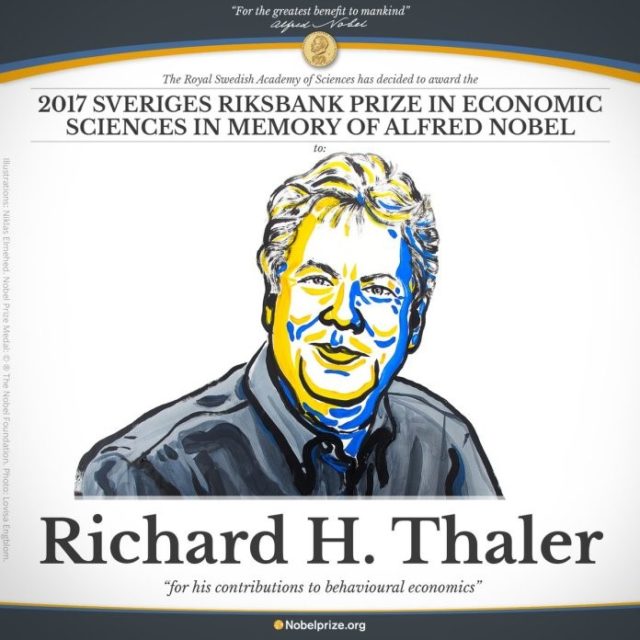PREVIOUS
Nobel Prize in Economic Sciences-2017
October 10 , 2017
2602 days
1116
0
- American economist Richard H. Thaler has won 2017 Nobel Prize in Economic Sciences for his contributions to Behavioural economics.
- Behavioural economics deals with decision-making that lies in the space between economics and relates to the impacts of psychology, social cognition, emotion factors in the decision making process in economics.
- Professor Thaler has been awarded the Nobel Prize for his decisive contribution in “BEHAVIOURAL ECONOMICS”-work on integrating economics with psychology.
- Professor Thaler has incorporated psychologically realistic assumptions into analyses of economic decision-making.

- Thaler has explored the consequences of limited rationality, social preferences,self control in decision making and has shown how these human traits systematically affect individual decisions as well as market outcomes.
- He is co-author (with Cass R. Sunstein) of global best seller Nudge (2008) in which concepts of behavioral economics are used to tackle many of society’s major problems.
- The economics prize, officially called the Sveriges Riksbank Prize in Economic Sciences in Memory of Alfred Nobel, was established in 1968.
- It was not part of the original group of awards set out in dynamite tycoon Nobel’s 1895 will.
Leave a Reply
Your Comment is awaiting moderation.


